Brain Health Leadership

Brain Health Advisory Council Feature – Atheda Fletcher
Atheda W. Fletcher– I grew up in the rural countryside of Seminole, Oklahoma in a very loving family that was always adamant about higher education. Each of my six siblings attended Indian Boarding Schools because that was the only available educational route for them. I was fortunate in that I only spent one-year at the Pawnee Indian Boarding School and then was allowed to attend a public school.Both my Mother and Father only finished school through the eighth grade, but were wise in their guidance. My Mother and Father always pushed education and my Father, in particular, was adamant in his urgings that we seek any additional education after high school—no matter what it was. He was well aware of what it would take for each of us to be successful in the future. Instilling that drive to seek higher education was learned from a very young age, and all but one sought to achieve higher education. My family is proud to have a PhD, a BA, Nutritionist, Aeronautical Engineer, Welder, Certified Administrator and a stay-at-home mom.This drive to learn more, seek more and help others along the way is one reason why I was eager to join the Brain Health Advisory Council. The other reason, having a better understanding about dementia and seeing the whole picture drives me to help in any way to bring more awareness and call to action the need for more attention to living a healthier lifestyle. I strongly believe it is so important to bring this awareness to our youth and even to older adults as it is never too late.Previously, I didn’t have a full understanding of dementia and its effect on the individual and the family. I now know that my Mother experienced dementia and so did my oldest sister. Until I joined the Absentee Shawnee Tribal Health System to work on the Alzheimer’s Disease Program Initiative grant, I truly did not have a full understanding of how dementia affected individuals and families. I wish that I had this knowledge at the time that my Mom and Sister were experiencing dementia. What a difference it would have made in so many areas of our lives.Being a partner with all the knowledgeable individuals on this advisory council is such an honor. I have a genuine interest in helping bring more awareness to our Native American populations about living a healthy lifestyle. And, dear to my heart, awareness of dementia and how it impacts the brain and each and every one of us. It is my chance to contribute to making a real impact, to share my knowledge and ideas. Health is today, not tomorrow!
I grew up in the rural countryside of Seminole, Oklahoma in a very loving family that was always adamant about higher education. Each of my six siblings attended Indian Boarding Schools because that was the only available educational route for them. I was fortunate in that I only spent one-year at the Pawnee Indian Boarding School and then was allowed to attend a public school.Both my Mother and Father only finished school through the eighth grade, but were wise in their guidance. My Mother and Father always pushed education and my Father, in particular, was adamant in his urgings that we seek any additional education after high school—no matter what it was. He was well aware of what it would take for each of us to be successful in the future. Instilling that drive to seek higher education was learned from a very young age, and all but one sought to achieve higher education. My family is proud to have a PhD, a BA, Nutritionist, Aeronautical Engineer, Welder, Certified Administrator and a stay-at-home mom.This drive to learn more, seek more and help others along the way is one reason why I was eager to join the Brain Health Advisory Council. The other reason, having a better understanding about dementia and seeing the whole picture drives me to help in any way to bring more awareness and call to action the need for more attention to living a healthier lifestyle. I strongly believe it is so important to bring this awareness to our youth and even to older adults as it is never too late.Previously, I didn’t have a full understanding of dementia and its effect on the individual and the family. I now know that my Mother experienced dementia and so did my oldest sister. Until I joined the Absentee Shawnee Tribal Health System to work on the Alzheimer’s Disease Program Initiative grant, I truly did not have a full understanding of how dementia affected individuals and families. I wish that I had this knowledge at the time that my Mom and Sister were experiencing dementia. What a difference it would have made in so many areas of our lives.Being a partner with all the knowledgeable individuals on this advisory council is such an honor. I have a genuine interest in helping bring more awareness to our Native American populations about living a healthy lifestyle. And, dear to my heart, awareness of dementia and how it impacts the brain and each and every one of us. It is my chance to contribute to making a real impact, to share my knowledge and ideas. Health is today, not tomorrow!
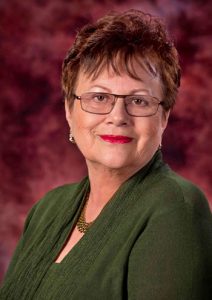 I grew up in the rural countryside of Seminole, Oklahoma in a very loving family that was always adamant about higher education. Each of my six siblings attended Indian Boarding Schools because that was the only available educational route for them. I was fortunate in that I only spent one-year at the Pawnee Indian Boarding School and then was allowed to attend a public school.Both my Mother and Father only finished school through the eighth grade, but were wise in their guidance. My Mother and Father always pushed education and my Father, in particular, was adamant in his urgings that we seek any additional education after high school—no matter what it was. He was well aware of what it would take for each of us to be successful in the future. Instilling that drive to seek higher education was learned from a very young age, and all but one sought to achieve higher education. My family is proud to have a PhD, a BA, Nutritionist, Aeronautical Engineer, Welder, Certified Administrator and a stay-at-home mom.This drive to learn more, seek more and help others along the way is one reason why I was eager to join the Brain Health Advisory Council. The other reason, having a better understanding about dementia and seeing the whole picture drives me to help in any way to bring more awareness and call to action the need for more attention to living a healthier lifestyle. I strongly believe it is so important to bring this awareness to our youth and even to older adults as it is never too late.Previously, I didn’t have a full understanding of dementia and its effect on the individual and the family. I now know that my Mother experienced dementia and so did my oldest sister. Until I joined the Absentee Shawnee Tribal Health System to work on the Alzheimer’s Disease Program Initiative grant, I truly did not have a full understanding of how dementia affected individuals and families. I wish that I had this knowledge at the time that my Mom and Sister were experiencing dementia. What a difference it would have made in so many areas of our lives.Being a partner with all the knowledgeable individuals on this advisory council is such an honor. I have a genuine interest in helping bring more awareness to our Native American populations about living a healthy lifestyle. And, dear to my heart, awareness of dementia and how it impacts the brain and each and every one of us. It is my chance to contribute to making a real impact, to share my knowledge and ideas. Health is today, not tomorrow!
I grew up in the rural countryside of Seminole, Oklahoma in a very loving family that was always adamant about higher education. Each of my six siblings attended Indian Boarding Schools because that was the only available educational route for them. I was fortunate in that I only spent one-year at the Pawnee Indian Boarding School and then was allowed to attend a public school.Both my Mother and Father only finished school through the eighth grade, but were wise in their guidance. My Mother and Father always pushed education and my Father, in particular, was adamant in his urgings that we seek any additional education after high school—no matter what it was. He was well aware of what it would take for each of us to be successful in the future. Instilling that drive to seek higher education was learned from a very young age, and all but one sought to achieve higher education. My family is proud to have a PhD, a BA, Nutritionist, Aeronautical Engineer, Welder, Certified Administrator and a stay-at-home mom.This drive to learn more, seek more and help others along the way is one reason why I was eager to join the Brain Health Advisory Council. The other reason, having a better understanding about dementia and seeing the whole picture drives me to help in any way to bring more awareness and call to action the need for more attention to living a healthier lifestyle. I strongly believe it is so important to bring this awareness to our youth and even to older adults as it is never too late.Previously, I didn’t have a full understanding of dementia and its effect on the individual and the family. I now know that my Mother experienced dementia and so did my oldest sister. Until I joined the Absentee Shawnee Tribal Health System to work on the Alzheimer’s Disease Program Initiative grant, I truly did not have a full understanding of how dementia affected individuals and families. I wish that I had this knowledge at the time that my Mom and Sister were experiencing dementia. What a difference it would have made in so many areas of our lives.Being a partner with all the knowledgeable individuals on this advisory council is such an honor. I have a genuine interest in helping bring more awareness to our Native American populations about living a healthy lifestyle. And, dear to my heart, awareness of dementia and how it impacts the brain and each and every one of us. It is my chance to contribute to making a real impact, to share my knowledge and ideas. Health is today, not tomorrow!Brain Health Advisory Council Feature – Chandra Wilson
Chandra Wilson
Project Manager – Bold NW Tribal Elder Project – Northwest Portland Area Indian Health Board (NPAIHB) I started my work in AI/AN public health services over two decades ago without knowing or having any understanding of the healthcare delivery systems.My interests and work are committed to developing programs and policies that will support tribal communities and address the persistent health disparities that tribal communities experience. I was born into a reservation community that views life through a Native lens which is a particular way of living; my vision has remained the same, to live out the ways I was raised by my grandparents, and that is to live in the footsteps of our ancestors, and to be guided by purpose and a good life. To me, this looks like to nurture, teach, protect, promote, provide, and advocate for the well-being of tribal communities, families, youth, and elders. This includes promoting traditional wellness, for long, healthy lives for our people. I want to help our tribal communities, our tribal programs, and families learn about dementia by understanding more about Alzheimer’s and how to recognize the early signs of memory loss.I am interested in serving on the national brain health advisory group for several reasons. I care about people. I care about elders, I care about the health of our brain. I care about traditional-wellness practices.I didn’t think twice about taking care of my brain until I experienced a traumatic brain injury. During my time serving on the advisory group, I hope to, build connections and expertise in dementia and brain health – bringing my knowledge, energy, and experience to the table and building relationships with other folks who care about people, elders, and brain health.Chandra Wilson serves as the program manager for BOLD and the NW Tribal Elder’s Project at the Northwest Portland Area Indian Health Board located in Portland, Oregon. In her role as the program manager, she manages and is responsible for supporting the goals and objectives for the BOLD grant and oversees and manages the overall work for the BOLD and NTEP projects and is responsible for assisting the member tribes of Idaho, Oregon and Washington with capacity building to address Alzheimer’s disease and related dementias.
I started my work in AI/AN public health services over two decades ago without knowing or having any understanding of the healthcare delivery systems.My interests and work are committed to developing programs and policies that will support tribal communities and address the persistent health disparities that tribal communities experience. I was born into a reservation community that views life through a Native lens which is a particular way of living; my vision has remained the same, to live out the ways I was raised by my grandparents, and that is to live in the footsteps of our ancestors, and to be guided by purpose and a good life. To me, this looks like to nurture, teach, protect, promote, provide, and advocate for the well-being of tribal communities, families, youth, and elders. This includes promoting traditional wellness, for long, healthy lives for our people. I want to help our tribal communities, our tribal programs, and families learn about dementia by understanding more about Alzheimer’s and how to recognize the early signs of memory loss.I am interested in serving on the national brain health advisory group for several reasons. I care about people. I care about elders, I care about the health of our brain. I care about traditional-wellness practices.I didn’t think twice about taking care of my brain until I experienced a traumatic brain injury. During my time serving on the advisory group, I hope to, build connections and expertise in dementia and brain health – bringing my knowledge, energy, and experience to the table and building relationships with other folks who care about people, elders, and brain health.Chandra Wilson serves as the program manager for BOLD and the NW Tribal Elder’s Project at the Northwest Portland Area Indian Health Board located in Portland, Oregon. In her role as the program manager, she manages and is responsible for supporting the goals and objectives for the BOLD grant and oversees and manages the overall work for the BOLD and NTEP projects and is responsible for assisting the member tribes of Idaho, Oregon and Washington with capacity building to address Alzheimer’s disease and related dementias.
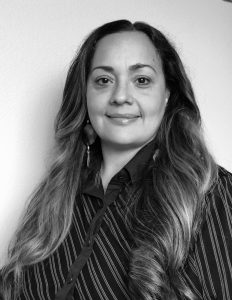 I started my work in AI/AN public health services over two decades ago without knowing or having any understanding of the healthcare delivery systems.My interests and work are committed to developing programs and policies that will support tribal communities and address the persistent health disparities that tribal communities experience. I was born into a reservation community that views life through a Native lens which is a particular way of living; my vision has remained the same, to live out the ways I was raised by my grandparents, and that is to live in the footsteps of our ancestors, and to be guided by purpose and a good life. To me, this looks like to nurture, teach, protect, promote, provide, and advocate for the well-being of tribal communities, families, youth, and elders. This includes promoting traditional wellness, for long, healthy lives for our people. I want to help our tribal communities, our tribal programs, and families learn about dementia by understanding more about Alzheimer’s and how to recognize the early signs of memory loss.I am interested in serving on the national brain health advisory group for several reasons. I care about people. I care about elders, I care about the health of our brain. I care about traditional-wellness practices.I didn’t think twice about taking care of my brain until I experienced a traumatic brain injury. During my time serving on the advisory group, I hope to, build connections and expertise in dementia and brain health – bringing my knowledge, energy, and experience to the table and building relationships with other folks who care about people, elders, and brain health.Chandra Wilson serves as the program manager for BOLD and the NW Tribal Elder’s Project at the Northwest Portland Area Indian Health Board located in Portland, Oregon. In her role as the program manager, she manages and is responsible for supporting the goals and objectives for the BOLD grant and oversees and manages the overall work for the BOLD and NTEP projects and is responsible for assisting the member tribes of Idaho, Oregon and Washington with capacity building to address Alzheimer’s disease and related dementias.
I started my work in AI/AN public health services over two decades ago without knowing or having any understanding of the healthcare delivery systems.My interests and work are committed to developing programs and policies that will support tribal communities and address the persistent health disparities that tribal communities experience. I was born into a reservation community that views life through a Native lens which is a particular way of living; my vision has remained the same, to live out the ways I was raised by my grandparents, and that is to live in the footsteps of our ancestors, and to be guided by purpose and a good life. To me, this looks like to nurture, teach, protect, promote, provide, and advocate for the well-being of tribal communities, families, youth, and elders. This includes promoting traditional wellness, for long, healthy lives for our people. I want to help our tribal communities, our tribal programs, and families learn about dementia by understanding more about Alzheimer’s and how to recognize the early signs of memory loss.I am interested in serving on the national brain health advisory group for several reasons. I care about people. I care about elders, I care about the health of our brain. I care about traditional-wellness practices.I didn’t think twice about taking care of my brain until I experienced a traumatic brain injury. During my time serving on the advisory group, I hope to, build connections and expertise in dementia and brain health – bringing my knowledge, energy, and experience to the table and building relationships with other folks who care about people, elders, and brain health.Chandra Wilson serves as the program manager for BOLD and the NW Tribal Elder’s Project at the Northwest Portland Area Indian Health Board located in Portland, Oregon. In her role as the program manager, she manages and is responsible for supporting the goals and objectives for the BOLD grant and oversees and manages the overall work for the BOLD and NTEP projects and is responsible for assisting the member tribes of Idaho, Oregon and Washington with capacity building to address Alzheimer’s disease and related dementias.Brain Health Advisory Council Feature – Collette Adamsen
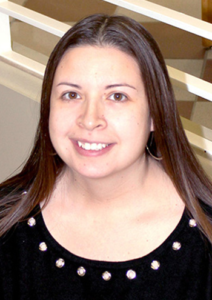 We are honored to feature Dr. Collette Adamsen as this month’s Brain Health Advisory Group Member Feature.Collette is originally from Belcourt, North Dakota, and is an enrolled member of the Turtle Mountain Band of Chippewa Indians. Since 2017, Dr. Adamsen has served as the director of the National Resource Center on Native American Aging (NRCNAA) at the Center for Rural Health (CRH) at the University of North Dakota (UND) School Medicine and Health Sciences in Grand Forks, North Dakota.Growing up, Collette shared that the support she received from her grandparents and other elders in the community was extremely important to her. As a result, she dedicated herself to giving back and working with native communities and elders.Collette reflected on how meaningful it is to listen to and visit elders from many communities, including her own, “being guided by elders allows us the opportunity to learn from their knowledge and wisdom.”Before joining the Center for Rural Health, Collette received a Bachelor of Arts degree in Economics, a Master of Public Administration with an emphasis in Health Administration, and a Doctorate in Educational Foundations and Research from the University of North Dakota.We asked her why she joined the IA²’s Brain Health Advisory Group. She shared how rewarding it is working with multiple tribes and organizations that all come together to better the lives of elders in communities. With so much information and education needed,Collette noted, “helping to be part of a group of trailblazers in finding ways to identify strategies and solutions to help elders, families, and caregivers who are affected by dementia is important and needed.” Check out Collette’s related article titled “The Association of Cultural Participation and Social Engagement with Self-Reported Diagnosis of Memory Problems Among American Indian and Alaska Native Elders.” The article examines the association of cultural participation and social engagement with older American Indians and Alaska Natives with self-reported diagnoses of memory problems.
We are honored to feature Dr. Collette Adamsen as this month’s Brain Health Advisory Group Member Feature.Collette is originally from Belcourt, North Dakota, and is an enrolled member of the Turtle Mountain Band of Chippewa Indians. Since 2017, Dr. Adamsen has served as the director of the National Resource Center on Native American Aging (NRCNAA) at the Center for Rural Health (CRH) at the University of North Dakota (UND) School Medicine and Health Sciences in Grand Forks, North Dakota.Growing up, Collette shared that the support she received from her grandparents and other elders in the community was extremely important to her. As a result, she dedicated herself to giving back and working with native communities and elders.Collette reflected on how meaningful it is to listen to and visit elders from many communities, including her own, “being guided by elders allows us the opportunity to learn from their knowledge and wisdom.”Before joining the Center for Rural Health, Collette received a Bachelor of Arts degree in Economics, a Master of Public Administration with an emphasis in Health Administration, and a Doctorate in Educational Foundations and Research from the University of North Dakota.We asked her why she joined the IA²’s Brain Health Advisory Group. She shared how rewarding it is working with multiple tribes and organizations that all come together to better the lives of elders in communities. With so much information and education needed,Collette noted, “helping to be part of a group of trailblazers in finding ways to identify strategies and solutions to help elders, families, and caregivers who are affected by dementia is important and needed.” Check out Collette’s related article titled “The Association of Cultural Participation and Social Engagement with Self-Reported Diagnosis of Memory Problems Among American Indian and Alaska Native Elders.” The article examines the association of cultural participation and social engagement with older American Indians and Alaska Natives with self-reported diagnoses of memory problems.Brain Health Advisory Council Feature – Eva Jackson
Written by: Eva Jackson My grandparents and great-grandparents have played a significant role in my life. I would beg my mom to take me to visit my great-grandparents after school growing up and moved into a rural community to care for my grandmother after finishing high school. I recently moved back to my hometown in order to be near my other grandmother, my parents, and my other family. Having worked as a professional care provider, in a skilled nursing home, and for an Area Agency on Aging, I see the gaps in the systems and the need to provide better care for those who cared for us and our community. Now, as an Associate Director with the Healthy Brain Initiative at the Alzheimer’s Association, I am honored to work on the Road Map for Indian Country. IA2 helped to write the Road Map for Indian Country and continues to develop valuable Brain Health resources for tribal communities. As this initiative moves forward, I am excited to see the leadership and collaboration around supporting Brain Health in tribal communities continue to grow and be strengthened by the collective knowledge and experiences leading the conversation.
My grandparents and great-grandparents have played a significant role in my life. I would beg my mom to take me to visit my great-grandparents after school growing up and moved into a rural community to care for my grandmother after finishing high school. I recently moved back to my hometown in order to be near my other grandmother, my parents, and my other family. Having worked as a professional care provider, in a skilled nursing home, and for an Area Agency on Aging, I see the gaps in the systems and the need to provide better care for those who cared for us and our community. Now, as an Associate Director with the Healthy Brain Initiative at the Alzheimer’s Association, I am honored to work on the Road Map for Indian Country. IA2 helped to write the Road Map for Indian Country and continues to develop valuable Brain Health resources for tribal communities. As this initiative moves forward, I am excited to see the leadership and collaboration around supporting Brain Health in tribal communities continue to grow and be strengthened by the collective knowledge and experiences leading the conversation.
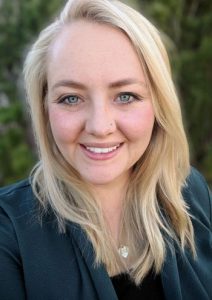 My grandparents and great-grandparents have played a significant role in my life. I would beg my mom to take me to visit my great-grandparents after school growing up and moved into a rural community to care for my grandmother after finishing high school. I recently moved back to my hometown in order to be near my other grandmother, my parents, and my other family. Having worked as a professional care provider, in a skilled nursing home, and for an Area Agency on Aging, I see the gaps in the systems and the need to provide better care for those who cared for us and our community. Now, as an Associate Director with the Healthy Brain Initiative at the Alzheimer’s Association, I am honored to work on the Road Map for Indian Country. IA2 helped to write the Road Map for Indian Country and continues to develop valuable Brain Health resources for tribal communities. As this initiative moves forward, I am excited to see the leadership and collaboration around supporting Brain Health in tribal communities continue to grow and be strengthened by the collective knowledge and experiences leading the conversation.
My grandparents and great-grandparents have played a significant role in my life. I would beg my mom to take me to visit my great-grandparents after school growing up and moved into a rural community to care for my grandmother after finishing high school. I recently moved back to my hometown in order to be near my other grandmother, my parents, and my other family. Having worked as a professional care provider, in a skilled nursing home, and for an Area Agency on Aging, I see the gaps in the systems and the need to provide better care for those who cared for us and our community. Now, as an Associate Director with the Healthy Brain Initiative at the Alzheimer’s Association, I am honored to work on the Road Map for Indian Country. IA2 helped to write the Road Map for Indian Country and continues to develop valuable Brain Health resources for tribal communities. As this initiative moves forward, I am excited to see the leadership and collaboration around supporting Brain Health in tribal communities continue to grow and be strengthened by the collective knowledge and experiences leading the conversation.Brain Health Advisory Council Feature – Joseph Ray
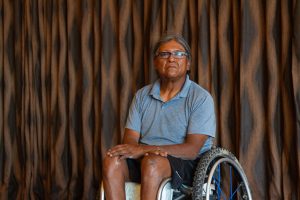 The survival of the American Indian People is the most important reason I choose to be involved with IA2. It goes that deep, my reasons why. So many of the kids I grew up with aren’t living in our town. We have a MAJOR housing shortage in Indian Country communities. They have moved to the city: Albuquerque, mostly.I am fortunate to still live in the town I grew up in, but it’s not easy. I work in different arenas advocating for services for American Indians with Disabilities, educating about the importance of having the least restrictive environment to participate in activities of daily life.Given the opportunity to speak on behalf of my peers, I am also a voting services Coordinator on my Reservation. The intersection of Disability and the importance of voting brought me to this place. Legislative bodies are slow to act. The plight of American Indian Elders and people with Disabilities is a cause near and dear to me.My Reservation community, in the 1970s, was still a close-knit community. I recall being welcomed into many households for a snack, some guidance. We were so close to our Aunts, Uncles, and friends. It wasn’t evident then that the end of an era was near. A concern about the effects of years of trauma: historical trauma, substance abuse, mainly alcoholism, has brought many tribal members major health problems. I watched an Uncle deteriorate mentally from the effects of alcoholism, many others experienced tragically similar endings. Friends never reaching the age of 40, 30, others died in their 20s, or teens. That is a life common to so many tribal peoples.A major health crisis still plays out its hand. Uranium mining led to radiation poisoning, and lives ended. The Nuclear age brought another form of death to Tribal people. These are my reasons for joining the IA2 Brain advisory group. The lack of data in Indian Country is detrimental to improving the health status of the people I grew up with.I asked my grandfather in his later days how he felt mentally, and he said if his body weren’t breaking down, he would still be working. I know that the American Indian people are a resilient, survivors, enduring community. He did work into his early 80s, building highways, running heavy equipment. He would have continued working in his garden and driveway for many more years if he didn’t have a medical condition that may have been related to his days of carving roads in the mine.My fierce loyalty to this man, my mom, grandmothers, sisters, and community is why I speak up, show at meetings, and articulate the situation in my community, when given the opportunity.
The survival of the American Indian People is the most important reason I choose to be involved with IA2. It goes that deep, my reasons why. So many of the kids I grew up with aren’t living in our town. We have a MAJOR housing shortage in Indian Country communities. They have moved to the city: Albuquerque, mostly.I am fortunate to still live in the town I grew up in, but it’s not easy. I work in different arenas advocating for services for American Indians with Disabilities, educating about the importance of having the least restrictive environment to participate in activities of daily life.Given the opportunity to speak on behalf of my peers, I am also a voting services Coordinator on my Reservation. The intersection of Disability and the importance of voting brought me to this place. Legislative bodies are slow to act. The plight of American Indian Elders and people with Disabilities is a cause near and dear to me.My Reservation community, in the 1970s, was still a close-knit community. I recall being welcomed into many households for a snack, some guidance. We were so close to our Aunts, Uncles, and friends. It wasn’t evident then that the end of an era was near. A concern about the effects of years of trauma: historical trauma, substance abuse, mainly alcoholism, has brought many tribal members major health problems. I watched an Uncle deteriorate mentally from the effects of alcoholism, many others experienced tragically similar endings. Friends never reaching the age of 40, 30, others died in their 20s, or teens. That is a life common to so many tribal peoples.A major health crisis still plays out its hand. Uranium mining led to radiation poisoning, and lives ended. The Nuclear age brought another form of death to Tribal people. These are my reasons for joining the IA2 Brain advisory group. The lack of data in Indian Country is detrimental to improving the health status of the people I grew up with.I asked my grandfather in his later days how he felt mentally, and he said if his body weren’t breaking down, he would still be working. I know that the American Indian people are a resilient, survivors, enduring community. He did work into his early 80s, building highways, running heavy equipment. He would have continued working in his garden and driveway for many more years if he didn’t have a medical condition that may have been related to his days of carving roads in the mine.My fierce loyalty to this man, my mom, grandmothers, sisters, and community is why I speak up, show at meetings, and articulate the situation in my community, when given the opportunity.Brain Health Advisory Council Feature – Kyle Wark
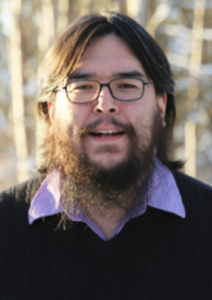 We are honored to feature Kyle Wark, MA, born and raised in Hoonah, Alaska, as this month’s Advisory Council Member Feature. His mother’s family is Tlingit and members of the Deisheetaan Raven/Beaver clan. Kyle’s father, from Seattle, was adopted into the Chookaneidi Eagle/Wolf clan. He currently works as a researcher for the Southcentral Foundation, working on Alzheimer’s, genomics, and social determinants of health projects.When asked what inspired him to join the IA2 Brain Health Advisory Group, Kyle noted,“I have a lot of experience with community engagement in Indigenous communities, and I have relatives who have developed dementia. Dementia is a real problem, and I have personally seen how some of the nuances and complexities can affect people’s lives. I also have extensive experience in research, policy analysis, and working in Indigenous communities.” Before his current role, Kyle’s interests focused on adverse childhood experiences and Indigenous research methodologies. During that time, he partnered with various Alaska Native advocacy organizations across Alaska.When asked what success in this initiative looked like, Kyle responded, “The creation of resources made by and for Native people and communities. Including the development of resources and interventions that do not feel outside of our worldview.”Kyle is a proud father of a 4-year-old daughter. He loves teaching her their language and culture and shares the importance of time spent with elders, as he notes they are the storytellers and knowledge holders. Kyle spoke about storytelling. He explained that “in my culture, we share experiences and stories, and people are then allowed the respect of making their own choices. When there is a lesson to be learned, our elders may tell us many different stories that all have one underlying message.”Kyle recently assisted IA2 in adapting Dementia Friends materials for American Indian and Alaska Native communities as part of a working group convened by IA2 and staff from the University of Reno (UNR), Nevada. Dementia Friends USA is a program focused on education and training about life for individuals living with dementia. Participants are then encouraged to turn their understanding into action. With Kyle’s input, experiences, and expertise, the Dementia Friends content was revised and adapted for American Indian and Alaska Native communities. His background and expertise in anthropology and Alaska Native history and culture were particularly beneficial to the process. Click to learn more about the new Dementia Friends Champions training program and information sessions hosted by IA2 with training conducted by UNR.Dementia Friends (iasquared.org)Thank you, Kyle, for all your support, dedication, and hard work. We look forward to continuing to work together.
We are honored to feature Kyle Wark, MA, born and raised in Hoonah, Alaska, as this month’s Advisory Council Member Feature. His mother’s family is Tlingit and members of the Deisheetaan Raven/Beaver clan. Kyle’s father, from Seattle, was adopted into the Chookaneidi Eagle/Wolf clan. He currently works as a researcher for the Southcentral Foundation, working on Alzheimer’s, genomics, and social determinants of health projects.When asked what inspired him to join the IA2 Brain Health Advisory Group, Kyle noted,“I have a lot of experience with community engagement in Indigenous communities, and I have relatives who have developed dementia. Dementia is a real problem, and I have personally seen how some of the nuances and complexities can affect people’s lives. I also have extensive experience in research, policy analysis, and working in Indigenous communities.” Before his current role, Kyle’s interests focused on adverse childhood experiences and Indigenous research methodologies. During that time, he partnered with various Alaska Native advocacy organizations across Alaska.When asked what success in this initiative looked like, Kyle responded, “The creation of resources made by and for Native people and communities. Including the development of resources and interventions that do not feel outside of our worldview.”Kyle is a proud father of a 4-year-old daughter. He loves teaching her their language and culture and shares the importance of time spent with elders, as he notes they are the storytellers and knowledge holders. Kyle spoke about storytelling. He explained that “in my culture, we share experiences and stories, and people are then allowed the respect of making their own choices. When there is a lesson to be learned, our elders may tell us many different stories that all have one underlying message.”Kyle recently assisted IA2 in adapting Dementia Friends materials for American Indian and Alaska Native communities as part of a working group convened by IA2 and staff from the University of Reno (UNR), Nevada. Dementia Friends USA is a program focused on education and training about life for individuals living with dementia. Participants are then encouraged to turn their understanding into action. With Kyle’s input, experiences, and expertise, the Dementia Friends content was revised and adapted for American Indian and Alaska Native communities. His background and expertise in anthropology and Alaska Native history and culture were particularly beneficial to the process. Click to learn more about the new Dementia Friends Champions training program and information sessions hosted by IA2 with training conducted by UNR.Dementia Friends (iasquared.org)Thank you, Kyle, for all your support, dedication, and hard work. We look forward to continuing to work together.Brain Health Advisory Council Feature – Leslie Best, BSW
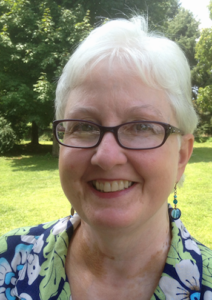 Leslie Best has more than 40 years of experience in health and human services in Pennsylvania.She has held a variety of positions in the Pennsylvania state government, including statewide oversight of the licensure of personal care homes and funding for county-based human service programs. In 1993, she joined the state Primary Care Office to start up a new program to increase the quantity and distribution of primary care practitioners, becoming program director in 1997.For nine years Ms. Best served as the Chronic Disease Director for the Pennsylvania Department of Health, where she directed statewide planning and program implementation for the Divisions of Health Risk Reduction, Cancer Prevention and Control, Nutrition and Physical Activity, and Tobacco Prevention and Control.She served as the President of the National Association of Chronic Disease Directors (NACDD) in 2011 and has been a senior public health consultant with NACDD since 2014. Ms. Best has provided consultation services to the Mississippi Public Health Institute; Geisinger Health System; the Family Health Council of Central PA and the Brown School of Public Health at Washington University.Accomplishments include leading the development of the National Public Health Agenda for Lupus; recommendations for cancer prevention during early and older adulthood; management of three workgroups focused on primary cancer prevention in persons with adverse childhood experiences, American Indians/Alaska Native people and Latino Americans, and led the development of resources for use by states that integrate messages about Alzheimer’s Disease into chronic disease programs.She also holds a degree in social work from Penn State University. Leslie is an amazing contributor to the Brain Health Advisory Group. She was interested in serving as an Advisory Group member to provide perspective as a long-time public health professional and knowledge from her experiences regarding program planning for this project. Thank you Leslie for your continued dedication!
Leslie Best has more than 40 years of experience in health and human services in Pennsylvania.She has held a variety of positions in the Pennsylvania state government, including statewide oversight of the licensure of personal care homes and funding for county-based human service programs. In 1993, she joined the state Primary Care Office to start up a new program to increase the quantity and distribution of primary care practitioners, becoming program director in 1997.For nine years Ms. Best served as the Chronic Disease Director for the Pennsylvania Department of Health, where she directed statewide planning and program implementation for the Divisions of Health Risk Reduction, Cancer Prevention and Control, Nutrition and Physical Activity, and Tobacco Prevention and Control.She served as the President of the National Association of Chronic Disease Directors (NACDD) in 2011 and has been a senior public health consultant with NACDD since 2014. Ms. Best has provided consultation services to the Mississippi Public Health Institute; Geisinger Health System; the Family Health Council of Central PA and the Brown School of Public Health at Washington University.Accomplishments include leading the development of the National Public Health Agenda for Lupus; recommendations for cancer prevention during early and older adulthood; management of three workgroups focused on primary cancer prevention in persons with adverse childhood experiences, American Indians/Alaska Native people and Latino Americans, and led the development of resources for use by states that integrate messages about Alzheimer’s Disease into chronic disease programs.She also holds a degree in social work from Penn State University. Leslie is an amazing contributor to the Brain Health Advisory Group. She was interested in serving as an Advisory Group member to provide perspective as a long-time public health professional and knowledge from her experiences regarding program planning for this project. Thank you Leslie for your continued dedication!Brain Health Advisory Council Feature – Talyah Sands, MPH
Written by: Talyah Sands, MPH My passion for promoting health sparked in college. During my freshman writing seminar on the theme “writing and social responsibility,” I read Mountains Beyond Mountains by Tracy Kidder about the late Dr. Paul Farmer. There was a moment in the book that struck me and has stuck with me ever since—after a long trek to provide medical care to people in a remote area of Haiti, Dr. Farmer had a conversation with one of the local people he was serving. The local person remarked that if their community had learned to read and write, maybe they would not be encountering the health challenges they were experiencing.The importance of having information to make decisions at the individual level and within a community is what drew me to public health and eventually to dementia. With a family history of dementia, I wish my family had more information about the signs of cognitive decline and what to do about it when we needed it most. Having witnessed the experience of cognitive decline within a family and hearing so many similar stories from others, I am inspired to work as part of the public health movement to improve outcomes and equity. I recognize that the information we need on a personal level to navigate our daily lives is also influenced by the systems and structures of our society that impact our education, economics, and exposures to name a few.I am honored to serve on IA²’s Brain Health Advisory Council as one way I can contribute to the public health movement to address dementia. It aligns with my value of equity and justice, and desire to improve equitable outcomes in brain health for American Indians and Alaska Natives. I have learned so much from the IA² team over the years. It is a privilege to continue learning from their work and that of the partners on the Advisory Council. I hope to continue learning from the IA² team and the Advisory Council partners about how we, as a public health community, can best meet the needs of American Indian and Alaska Native people living with dementia and their caregivers.
My passion for promoting health sparked in college. During my freshman writing seminar on the theme “writing and social responsibility,” I read Mountains Beyond Mountains by Tracy Kidder about the late Dr. Paul Farmer. There was a moment in the book that struck me and has stuck with me ever since—after a long trek to provide medical care to people in a remote area of Haiti, Dr. Farmer had a conversation with one of the local people he was serving. The local person remarked that if their community had learned to read and write, maybe they would not be encountering the health challenges they were experiencing.The importance of having information to make decisions at the individual level and within a community is what drew me to public health and eventually to dementia. With a family history of dementia, I wish my family had more information about the signs of cognitive decline and what to do about it when we needed it most. Having witnessed the experience of cognitive decline within a family and hearing so many similar stories from others, I am inspired to work as part of the public health movement to improve outcomes and equity. I recognize that the information we need on a personal level to navigate our daily lives is also influenced by the systems and structures of our society that impact our education, economics, and exposures to name a few.I am honored to serve on IA²’s Brain Health Advisory Council as one way I can contribute to the public health movement to address dementia. It aligns with my value of equity and justice, and desire to improve equitable outcomes in brain health for American Indians and Alaska Natives. I have learned so much from the IA² team over the years. It is a privilege to continue learning from their work and that of the partners on the Advisory Council. I hope to continue learning from the IA² team and the Advisory Council partners about how we, as a public health community, can best meet the needs of American Indian and Alaska Native people living with dementia and their caregivers.
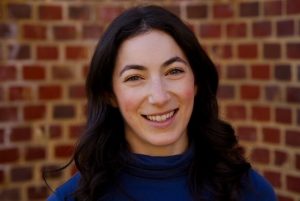 My passion for promoting health sparked in college. During my freshman writing seminar on the theme “writing and social responsibility,” I read Mountains Beyond Mountains by Tracy Kidder about the late Dr. Paul Farmer. There was a moment in the book that struck me and has stuck with me ever since—after a long trek to provide medical care to people in a remote area of Haiti, Dr. Farmer had a conversation with one of the local people he was serving. The local person remarked that if their community had learned to read and write, maybe they would not be encountering the health challenges they were experiencing.The importance of having information to make decisions at the individual level and within a community is what drew me to public health and eventually to dementia. With a family history of dementia, I wish my family had more information about the signs of cognitive decline and what to do about it when we needed it most. Having witnessed the experience of cognitive decline within a family and hearing so many similar stories from others, I am inspired to work as part of the public health movement to improve outcomes and equity. I recognize that the information we need on a personal level to navigate our daily lives is also influenced by the systems and structures of our society that impact our education, economics, and exposures to name a few.I am honored to serve on IA²’s Brain Health Advisory Council as one way I can contribute to the public health movement to address dementia. It aligns with my value of equity and justice, and desire to improve equitable outcomes in brain health for American Indians and Alaska Natives. I have learned so much from the IA² team over the years. It is a privilege to continue learning from their work and that of the partners on the Advisory Council. I hope to continue learning from the IA² team and the Advisory Council partners about how we, as a public health community, can best meet the needs of American Indian and Alaska Native people living with dementia and their caregivers.
My passion for promoting health sparked in college. During my freshman writing seminar on the theme “writing and social responsibility,” I read Mountains Beyond Mountains by Tracy Kidder about the late Dr. Paul Farmer. There was a moment in the book that struck me and has stuck with me ever since—after a long trek to provide medical care to people in a remote area of Haiti, Dr. Farmer had a conversation with one of the local people he was serving. The local person remarked that if their community had learned to read and write, maybe they would not be encountering the health challenges they were experiencing.The importance of having information to make decisions at the individual level and within a community is what drew me to public health and eventually to dementia. With a family history of dementia, I wish my family had more information about the signs of cognitive decline and what to do about it when we needed it most. Having witnessed the experience of cognitive decline within a family and hearing so many similar stories from others, I am inspired to work as part of the public health movement to improve outcomes and equity. I recognize that the information we need on a personal level to navigate our daily lives is also influenced by the systems and structures of our society that impact our education, economics, and exposures to name a few.I am honored to serve on IA²’s Brain Health Advisory Council as one way I can contribute to the public health movement to address dementia. It aligns with my value of equity and justice, and desire to improve equitable outcomes in brain health for American Indians and Alaska Natives. I have learned so much from the IA² team over the years. It is a privilege to continue learning from their work and that of the partners on the Advisory Council. I hope to continue learning from the IA² team and the Advisory Council partners about how we, as a public health community, can best meet the needs of American Indian and Alaska Native people living with dementia and their caregivers.Brain Health Advisory Council Feature – Tiffany Robb
Tiffany Robb, MHS
Idaho’s ADRD Program Manager I had the great honor of being very close to my grandparents and great-grandparents as a child. Working in the garden, cooking, fishing, or even providing emotional support while Grandpa worked on his truck are some of the activities I enjoyed while being with my grandparents. When one of my grandfathers became ill, and it led to a state of dementia, I wanted to be there at his bedside. I tried to stand as his advocate and honor him the best I could.I guess you could say the experience I had with my grandfather’s death and my connection with my elders is what drew me to working in the field of Alzheimer’s Disease and Related Dementias (ADRD). I previously worked to support family caregivers at Boise State University’s Center for the Study of Aging when my current position was created. I knew I needed to become the Program Manager for the state’s new ADRD Public Health Program. This was an opportunity to continue my work supporting caregivers while also serving others like my grandfather.My interest in serving on the National Brain Health Advisory Group was guided by the belief that we do
not know everything and as we develop our statewide ADRD Program, we need to place ourselves in
positions of learning. I hope to gain relationships, an understanding of how I can become more culturally
competent, and how our ADRD Program can best serve all of those who live within the boundaries of
Idaho.
I had the great honor of being very close to my grandparents and great-grandparents as a child. Working in the garden, cooking, fishing, or even providing emotional support while Grandpa worked on his truck are some of the activities I enjoyed while being with my grandparents. When one of my grandfathers became ill, and it led to a state of dementia, I wanted to be there at his bedside. I tried to stand as his advocate and honor him the best I could.I guess you could say the experience I had with my grandfather’s death and my connection with my elders is what drew me to working in the field of Alzheimer’s Disease and Related Dementias (ADRD). I previously worked to support family caregivers at Boise State University’s Center for the Study of Aging when my current position was created. I knew I needed to become the Program Manager for the state’s new ADRD Public Health Program. This was an opportunity to continue my work supporting caregivers while also serving others like my grandfather.My interest in serving on the National Brain Health Advisory Group was guided by the belief that we do
not know everything and as we develop our statewide ADRD Program, we need to place ourselves in
positions of learning. I hope to gain relationships, an understanding of how I can become more culturally
competent, and how our ADRD Program can best serve all of those who live within the boundaries of
Idaho.
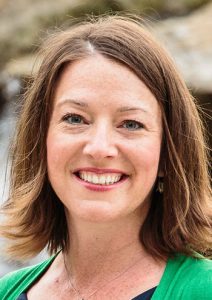 I had the great honor of being very close to my grandparents and great-grandparents as a child. Working in the garden, cooking, fishing, or even providing emotional support while Grandpa worked on his truck are some of the activities I enjoyed while being with my grandparents. When one of my grandfathers became ill, and it led to a state of dementia, I wanted to be there at his bedside. I tried to stand as his advocate and honor him the best I could.I guess you could say the experience I had with my grandfather’s death and my connection with my elders is what drew me to working in the field of Alzheimer’s Disease and Related Dementias (ADRD). I previously worked to support family caregivers at Boise State University’s Center for the Study of Aging when my current position was created. I knew I needed to become the Program Manager for the state’s new ADRD Public Health Program. This was an opportunity to continue my work supporting caregivers while also serving others like my grandfather.My interest in serving on the National Brain Health Advisory Group was guided by the belief that we do
not know everything and as we develop our statewide ADRD Program, we need to place ourselves in
positions of learning. I hope to gain relationships, an understanding of how I can become more culturally
competent, and how our ADRD Program can best serve all of those who live within the boundaries of
Idaho.
I had the great honor of being very close to my grandparents and great-grandparents as a child. Working in the garden, cooking, fishing, or even providing emotional support while Grandpa worked on his truck are some of the activities I enjoyed while being with my grandparents. When one of my grandfathers became ill, and it led to a state of dementia, I wanted to be there at his bedside. I tried to stand as his advocate and honor him the best I could.I guess you could say the experience I had with my grandfather’s death and my connection with my elders is what drew me to working in the field of Alzheimer’s Disease and Related Dementias (ADRD). I previously worked to support family caregivers at Boise State University’s Center for the Study of Aging when my current position was created. I knew I needed to become the Program Manager for the state’s new ADRD Public Health Program. This was an opportunity to continue my work supporting caregivers while also serving others like my grandfather.My interest in serving on the National Brain Health Advisory Group was guided by the belief that we do
not know everything and as we develop our statewide ADRD Program, we need to place ourselves in
positions of learning. I hope to gain relationships, an understanding of how I can become more culturally
competent, and how our ADRD Program can best serve all of those who live within the boundaries of
Idaho.Brain Health Advisory Council Feature – Wes Martin
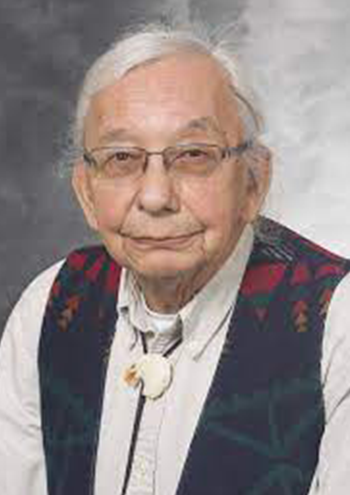 We are honored to feature Wes Martin as this month’s Advisory Council Member Feature. Wes Martin is a proud member of the Oneida Nation and the Great Lakes Native American Elder Association president. After completing the University of New Mexico’s law program, in 1980, Wes dedicated himself to practicing law in Indian Country. He worked on the reservation for over 35 years and has represented people in every tribal court in Wisconsin.He began his work with Elders by serving as a chair with the Great Lakes Tribal Council. In this position, he partnered with Elders of the Great Lakes region and doctors from the University of Wisconsin who were working on an Alzheimer’s project. Martin noticed that there was very little information available about Alzheimer’s disease for Native Americans in Wisconsin. These events led Martin to become involved with some national organizations in Duluth, Minnesota, and started working with Dr. Joseph Neil Henderson.When asked why he joined IA2’s Brain Health Advisory Council, Martin shared that he had worried about his brain health when he started to struggle to remember the names of his long-time friends. Martin began to look for information regarding aging and could not find any resources and learned that the clinics on the Wisconsin reservations had hardly any programs to deal with Alzheimer’s. When IA2’s executive director asked if Martin would join the Advisory Group, Martin was thrilled to help spread awareness and information about Alzheimer’s.When asked what success looked like for this initiative, Martin responded;“Success would be to reach as many Native Americans as possible with information,” Martin stated that a coordinated effort is needed to be successful. The cultural differences between Alzheimer’s and dementia for Elders are essential to consider when creating information resources.
We are honored to feature Wes Martin as this month’s Advisory Council Member Feature. Wes Martin is a proud member of the Oneida Nation and the Great Lakes Native American Elder Association president. After completing the University of New Mexico’s law program, in 1980, Wes dedicated himself to practicing law in Indian Country. He worked on the reservation for over 35 years and has represented people in every tribal court in Wisconsin.He began his work with Elders by serving as a chair with the Great Lakes Tribal Council. In this position, he partnered with Elders of the Great Lakes region and doctors from the University of Wisconsin who were working on an Alzheimer’s project. Martin noticed that there was very little information available about Alzheimer’s disease for Native Americans in Wisconsin. These events led Martin to become involved with some national organizations in Duluth, Minnesota, and started working with Dr. Joseph Neil Henderson.When asked why he joined IA2’s Brain Health Advisory Council, Martin shared that he had worried about his brain health when he started to struggle to remember the names of his long-time friends. Martin began to look for information regarding aging and could not find any resources and learned that the clinics on the Wisconsin reservations had hardly any programs to deal with Alzheimer’s. When IA2’s executive director asked if Martin would join the Advisory Group, Martin was thrilled to help spread awareness and information about Alzheimer’s.When asked what success looked like for this initiative, Martin responded;“Success would be to reach as many Native Americans as possible with information,” Martin stated that a coordinated effort is needed to be successful. The cultural differences between Alzheimer’s and dementia for Elders are essential to consider when creating information resources.